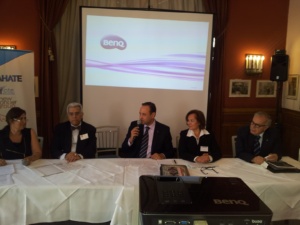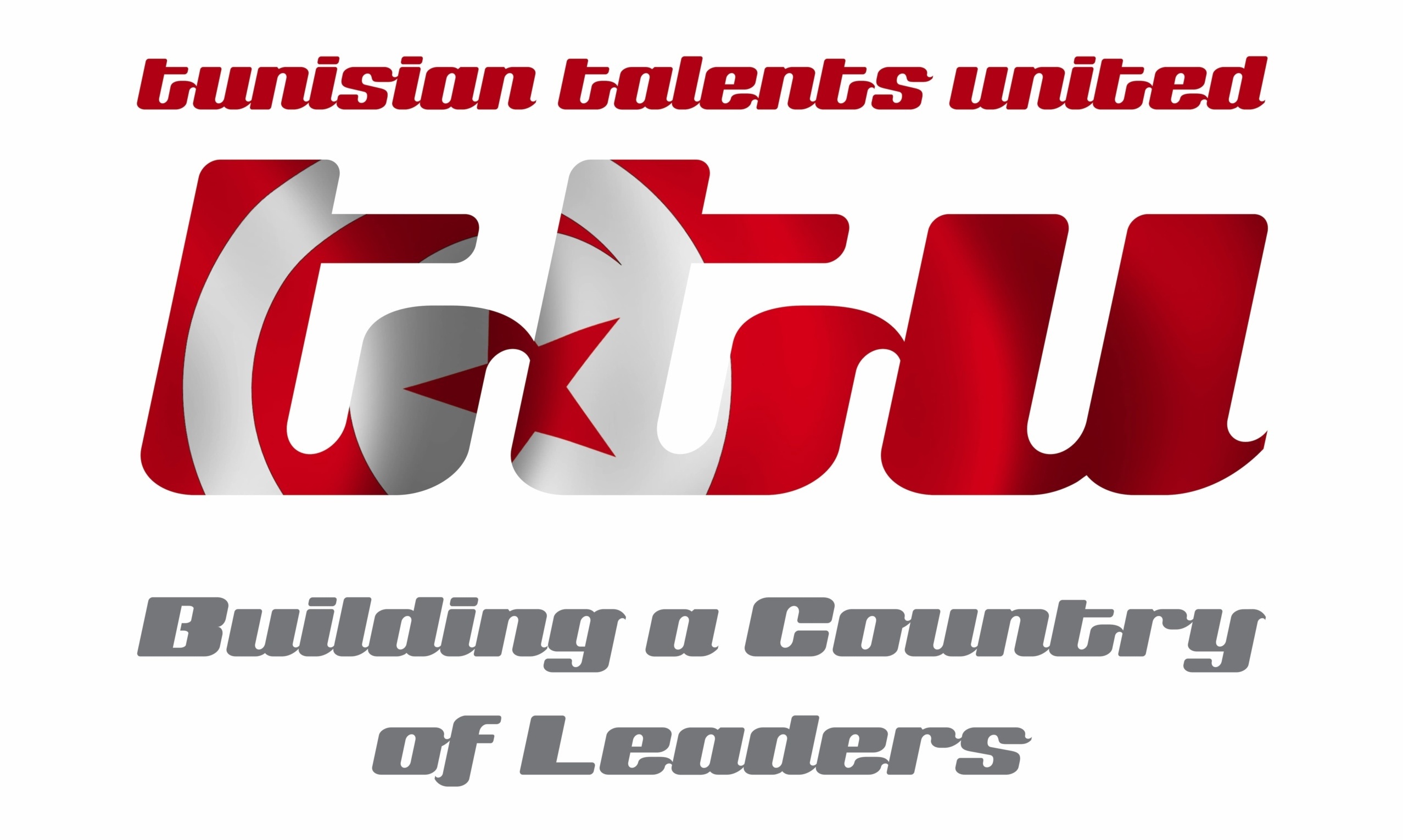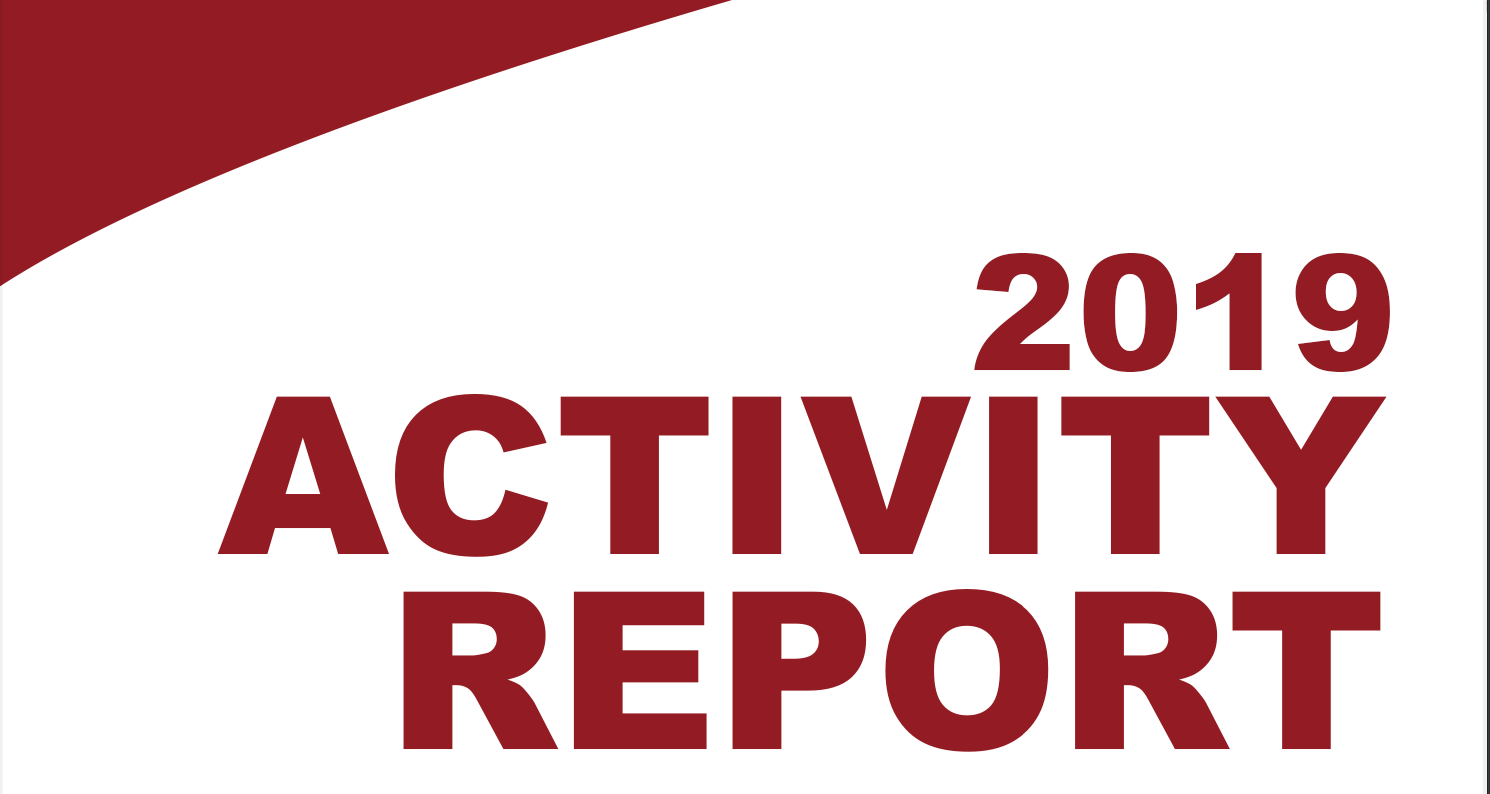International Tunisian Business Leaders and Industry Experts Call on Government to Implement Immediate Reforms
Proposed Recommendations for Reforms Offers Key Solutions to Attract Foreign Direct Investment across Critical Economic Sectors.
A group of Tunisian and foreign business leaders and industry experts as volunteers, under the umbrella of The Association of Tunisian Business People Worldwide, held a forum in Vienna, Austria on Friday 5th June 2015 Under the theme:
“Tunisia 21st Century Sustainable Development Imperatives”
With the aim to discuss the Tunisian government’s challenges to implement economic reforms, attracting foreign direct investment and spurring sustainable economic growth.
The forum participants included over 100 Tunisians and international experts from government, business and civil society. The group addressed issues of national security, governance and employment hindering economic growth across key sectors.
Tunisia is a country of opportunities and is blessed with a highly educated human capital base. The country needs to review and update government policies and regulations that meet the 21st century requirements to facilitate and drive economic growth, job creation and significant attraction of foreign direct investment.
The group of highly experienced Tunisian industry leaders (from Tunisia and overseas) and international investors are compelled to support and advise the government onto a path that will ensure long term sustainable economic growth; however this is only achievable through the immediate implementation of action-oriented and tangible economic reforms. The proposed framework provides critical reforms and solutions for consideration by the Tunisian government. These will encourage foreign direct investment, infrastructure development and ensure sustainable economic growth. The development of a five year Reforms Implementation Plan (RIP) with milestones and key performance Indicators (KPIs) would be a first step in the right direction.
There is an urgent need to articulate and put in place an inspiring National State Vision /Strategy 2050 (with medium plans, milestones and key performance indicators in 2020, 2025, 2030, 2035, 2040, 2045, 2050) to align and unit the nation to move forward hand in hand to turn our dreams into reality for securing a better future for our children and grandchildren. Today decisions will be guided by the inspiring National Long-term Vision.
The forum participants focused their attention on issues facing the economy and its governance with a particular focus on security, education, healthcare and energy sectors.
The forum concluded with the following set of recommendations for strategic economic and sectorial reforms to propose to the Tunisian Government.
Tunisia National Security
Security and safety Systems & Services for sensitive assets and citizen protection are huge potential market for Tunisia. It opens to the country several opportunities of business development and reduce the existing risks threatening the population and their assets. Here are few recommendations to be further discussed:
1) Develop a comprehensive approach to Tunisia security of its Assets & Infrastructure and Citizen Protection including awareness program in the education system as well as for the public and private enterprises
3) Consider adequate PPP initiatives and international cooperation to face the challenge and mitigate the risks
4) Create an independent Authority to supervise Security, Safety and Crisis Management having its own command and control Centre involving Presidency, Government (Ministry of Interior (MOI), Ministry of Defense (MOD) and concerned parties), Parliament, Private Sectors as well as Civil Society.
2) Establish a Nation Wide integrated system/network – preferably encrypted – for Public Safety and Urban Security using existing civil works and state of the art technologies for Police, Civil Defense, Military and other security bodies
Tunisia Education
1) Linking education streams with employability. This is to be achieved through encouraging collaborative relationships between universities and private-sector employers. Universities need to be more dynamic and aligned with national and regional priorities.
2) Rehabilitation of instructors across primary, secondary and post-secondary schooling to be in the 21st-century digital world competition and in phase with “PNS Tunisia 2018”. Students should develop the required skills to enable them to become digital actors, not as mere consumers, and to access the many future jobs where knowledge of digital is essential.
3) Invest in new types of schools with a strong emphasis on Information, Communication Technology (ICT)
4) Encourage the establishment of high-quality private educational institutions focused on the success of students. This will require the re-engineering of structures and governance of universities.
5) Governance and accountability: Review the education and vocational training systems and initiate a road map for structural reform in order to build a high-quality education accessible to all, and create a national system of innovation, scientific research and development.
6) Establish a competitive mechanism for research funding and give more operational autonomy and flexibility to education institutions.
7) Encourage and maintain a new culture of academic freedom with student-centered philosophy.

Tunisia Healthcare Challenges and Opportunities
1) Healthcare quality:
– Reform of healthcare regulatory laws in order to become compatible with current international healthcare, best practice which will be based on “PATIENTS FIRST” model to covert “PATIENTS RIGHTS”.
– International Healthcare Standards = International Joint Commission to mainly attract international patients for medical tourism initiatives, which will create more jobs.
– More training programs for support services like nurses and allied health caregivers to keep up with a safe and cost effective healthcare practice.
– Add and Standardize medical technology (including equipment and pharmaceutical) throughout the country.
2) Healthcare accessibility:
– Assessment and evaluation of distribution of healthcare facilities throughout the country for practical throughput, upgrade existing outpatient medical clinic “Mustawsif”. Build state of the art additional facilities according to a well thought out strategic needs and prioritize on non-coastal areas. Quality and regulated urgent care centers for areas with limited access to primary care, which will result in creation of more jobs and access to necessary healthcare.
– Enhance patient and work flows to access healthcare facility and use a proper technology to facilitate patient access to healthcare accordingly. I.e.Telemedicine, satellite practical medical centers.
– Set up healthcare network model to create more employment, competition, lower cost and improve healthcare quality by promoting Public and Private Partnership (PPP) between healthcare providers.
– Create universal healthcare insurance.
3) Healthcare affordability:
– Preventive medicine will lower the cost (target of 30 %): health awareness since primary school, patient education and national strategy.
– Compromise between Healthcare ministry, patients, insurance payers, CNAM, caregivers and private healthcare providers for wider healthcare access.
Tunisia Energy Sector
1) Governance of the energy sector
We recommend initiating the creation of an independent (from Government) Energy Regulatory and Supervisory Agency (ERSA) that would develop and implement the required regulations for policy implementation and control the sector.
We also recommend initiating a project law for creating a National Supreme Authority of Energy (NSAE) to provide the necessary governance structure to achieve alignment between the relevant stakeholders, set common policies and implement the national long term integrated energy strategy of the 21st century.
2) Share of renewable energy in the mix
We commend the Tunisian target to increase the share of renewable energy to 30% by 2030. However, given the recent developments in Dubai and Jordan where solar PV has now proven to be the cheapest form of energy, the fact that Tunisia has better conditions for PV and the ability of PV to shave the electricity peaks, we are convinced Tunisia can be more ambitious. We urge the government to consider increasing the target to 50% by 2030.
3) Spurring innovation in the energy sector
The global energy sector is transforming fast, with new players, disruptive technologies and new sources of capital. Examples are the democratization of energy, the internet of things, smart grid technologies, increasing urbanization and accelerating levels of electrification. This creates opportunities for Tunisia’s young people who could take up new business ideas in the energy space that do not necessarily require large amounts of capital. We propose setting up an energy innovation fund of $50M over a period of 5 years enabling start-ups providing products and services that help reduce energy consumption or decarbonize our economy.
Tunisia Economy
1) As Tunisia successfully completed a historical and remarkable democratic transition and witnessed major positive developments towards achieving political stability with a new constitution, election of a new parliament and President and the nomination of a Government, Tunisia should now take the necessary security and socio-economic measures that will have a quick impact in the short and medium run.
2) We recommended to the Government to prepare and implement an “Inclusive and Sustainable Economic Development Strategy for Tunisia 2016-2030” ISEDS. The Strategy should aim to boost economic growth, attract investments and pave the way for a faster, sustainable and more inclusive growth. (As is the declared purpose of the new investment code, and the question of setting up a Tunisian Investment Authority (TIA), this purpose of ISEDS can be shared with or included in the (TIA scope).
3) A participatory approach is recommended to be adopted by the government for the preparation and monitoring of the ISEDS including the main political parties, the national and civil society organizations and the representatives of the Private Sector.
4) We recommended to the Government to negotiate and agree with UGTT, UTICA and UTAP a three year Partnership Agreement (grace period without strikes) in order to consolidate and achieve political and social stability, necessary conditions to re-launch and boast economic growth and attract domestic and international investments. (In the same way Government is planning to collect said entity’s opinion about the investment code)
5) We recommended to the Government to take the necessary measures and reforms to tackle the regulatory and bureaucratic obstacles and restore the Macroeconomic Stability for securing the business community. The reforms should include: the fiscal and tax reforms, the monetary policy, the Business Climate reforms, the new investment code. (First impression about the new investment code is that it tackles the fiscal and tax reform and that it tackle the change policy)
6) We recommended to the Government to support a market, knowledge-based and private sector led economy, maximize value-added, encourage the transformation of
businesses from informal to formal and SMEs from suppliers/sub-contractors to market leaders, as well as to facilitate creation of adequate, decent and productive job opportunities mainly in the lagging regions.
7) Tunisia has abundant human resources and a diversified economic base, an enviable geographical location that will enable the country to become a trading and logistical hub connecting the Arab region, Africa and Europe. In the frame of the ISEDS, it is highly recommended to the Government to initiate and launch PPP mega projects mainly in the lagging regions to address the country’s infrastructure needs (including industrial corridors, highways and express roads, railway, and metro transportation), renewable energy, mining, manufacturing, and agriculture.
8) To encourage the creation and development of an effective eco-system at the level of industrial corridors, value chains and clusters, both the Government and the Private sector should foster the integration of actions covering legal framework, investment, infrastructure, vocational training and innovation, and SME creation and upgrading in selected areas and value chains with big potential for employment and export.
9) Special attention should be given to ensure a greater coherence among the development partners supporting Tunisia and to increase their commitment to help to fund and implement the ISEDS and further consolidate the democracy, the security and the socio-economic development of Tunisia and the aspiration of the Tunisian people.
10) Lobby of Tunisia’s creditors for debt relief, especially countries that have a vested interest in seeing Tunisia’s successful transition towards democracy.
11) Facilitate foreign investors’ repatriation of funds and have a serious medium-term strategy to float the Tunisian Dinar in due course, when Tunisia’s FX reserves and economic fundamentals allow it.”
The above recommendations are formally addressed to the Tunisian presidency, parliament, government and civil society; with the ambition to establish a more favorable investment environment and enable immediate economic growth.
These are goals and solutions through which the group is prepared to support the Tunisian government in their implementation with more detailed consultations. Focused workshops need to be conducted inclusively and in collaboration with the public and private sector as well as civil society. ”Vienna Forum – Extracted Recommendations”
Media Coverage

Les Talents tunisiens unis recommandent la création d’un organisme indépendant pour la gouvernance du secteur de l’énergie



